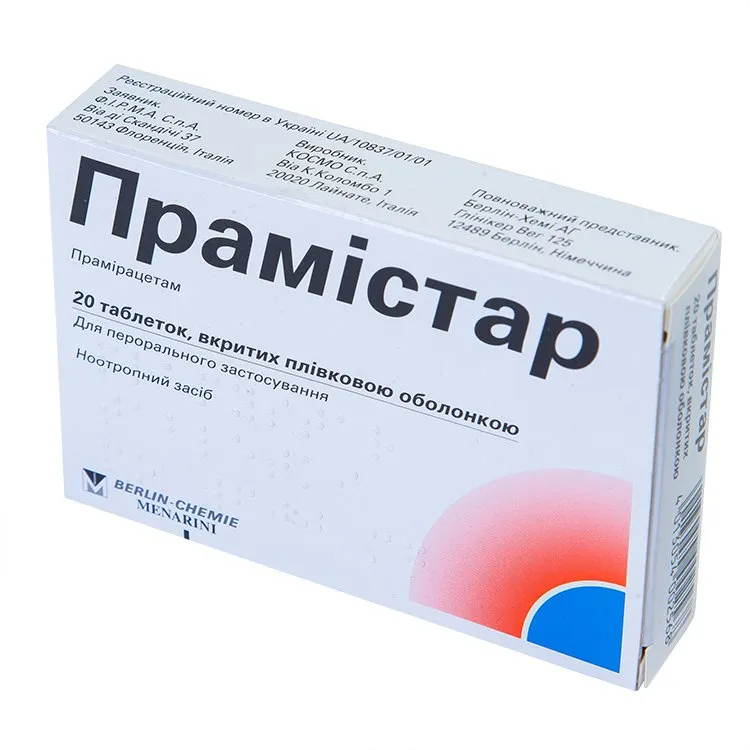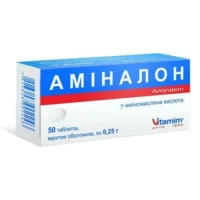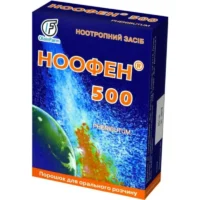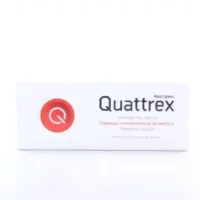Description
Pramistar Coated Tablets №20
Ingredients:
- Each tablet contains 600mg of piracetam.
Dosage:
- The usual dose is 2 tablets twice a day.
Indications:
- Pramistar is indicated for the treatment of cognitive disorders of cerebrovascular and degenerative origin.
Contraindications:
- Do not use in patients with severe renal impairment.
Directions:
- Take the tablets with meals to reduce the likelihood of gastrointestinal side effects.
Scientific Evidence:
Pramistar, containing piracetam as its active ingredient, has been extensively studied for its cognitive-enhancing effects. Research published in the Journal of Clinical Psychopharmacology demonstrated that piracetam significantly improved cognitive function in patients with mild cognitive impairment compared to placebo.
Additional Information:
- Individual responses to Pramistar may vary, and it may take several weeks to experience the full cognitive benefits of the medication.
- Clinical trials have shown that Pramistar is well-tolerated with a low incidence of side effects, making it a favorable option for individuals seeking cognitive support.





